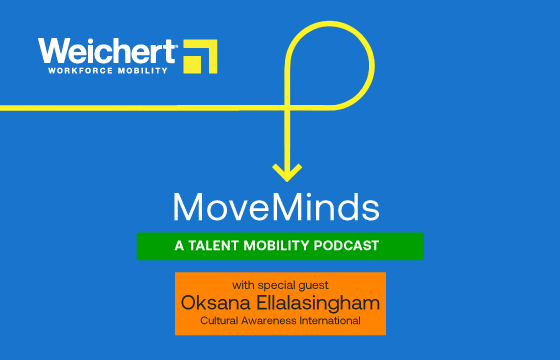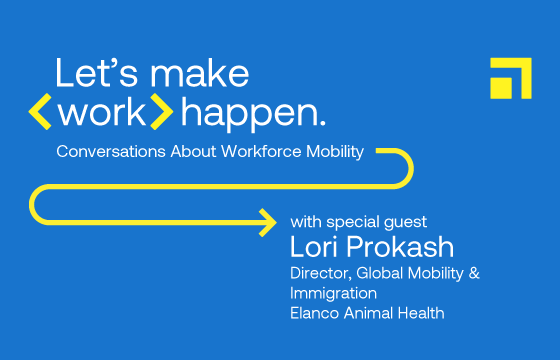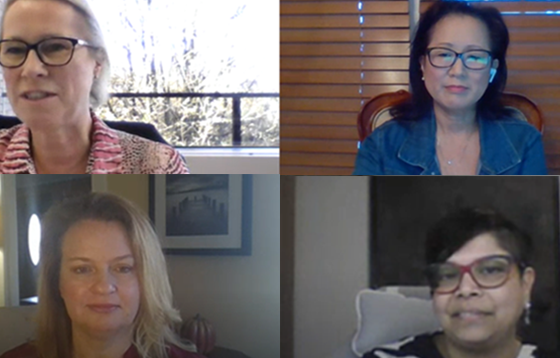
MoveMinds: Hitting the Ground Running
Our third MoveMinds episode features Oksana Ellalasingham of Cultural Awareness International, who shares the critical role that DSPs can play in driving the success of a relocation.

Our third MoveMinds episode features Oksana Ellalasingham of Cultural Awareness International, who shares the critical role that DSPs can play in driving the success of a relocation.

Right now, we're all looking for ways to reduce costs without impacting employee experience. Despite your best intentions, however, you may be unknowingly putting your bottom line at risk.

With little existing research in this area, we seized the opportunity to bridge the data gap with the industry’s most comprehensive study into Employee-Initiated Moves.

For an expat, coming home for the holidays can spur a rush of emotions that can relatively quickly spiral from overjoyed to overwhelmed!

We're delighted to welcome Lori Prokash of Elanco Animal Health for Episode 6 of our hit web series, where she shares how to leverage core/flex approaches within international mobility.

When it's time to drop the status of "assignee" and make the transition to a local employee in the host country, you "localize"! Localizations are primed to increase, so it's important to evaluate your strategy now.

The longer the extended lockdown in Shanghai continues, the deeper the impact on a number of fronts, including global mobility.

To help clients assess the full impact of the Ukraine crisis on their international assignees, we hosted a live information session with Weichert subject matter experts in global client services, international household goods and global finance, as well as two on-the-ground providers.

While the situation in the Ukraine is fluid and evolving quickly, there will obviously be an impact to businesses and global assignees.

Tennis star Novak Djokovic's attempts to enter Australia are an excellent reminder of the challenges facing international business travelers and the negative impact of less-than-stellar global mobility compliance.

An overview of current global mobility and supply chain trends and challenges, as discussed by three of our regional leaders.

The proliferation of electric cars begs the question: should you reimburse transferees and assignees for public battery charging fees?

Post-pandemic workforce mobility may look different, but an answer to that age-old question of how to accurately measure mobility's return on investment (ROI) — and report it senior leadership — remains as elusive as ever.

Trends, best practices and challenges detected during a recent roundtable with mobility managers from the mining industry.

Companies with mobile employees and business travelers can't turn a blind eye to new visa and tax compliance and employee safety risks.

For managers of employee relocation and business travel, all eyes have been on the pending ISO 31030 standard, which will become the new global benchmark for travel risk management and duty of care.

Answering important questions regarding the COVID crisis in India and how it is impacting mobile employees.

Weichert SMARTRIPTM is a groundbreaking solution for companies to manage their fluid workforce with greater transparency and efficiency and mitigate the associated risks, anywhere in the world.

There are multiple benefits that mentoring programs can have for employees embarking on an international assignment -- and for companies seeking increased ROI.

In the final post in this forward-looking series, we examine virtual assignments, which are deceptively complex and carry significant disadvantages.

Will corporate global mobility volumes in the amplified state of VUCA return to pre-COVID levels? And if so, when and to what extent?

The gig economy helped fill urgent roles created by the pandemic. But this demographic became part of the workforce mobility lexicon several years ago as companies began to rely on contract workers to address specific challenges.

While virtual global assignments remain a hot topic of conversation, many companies have at least acknowledged that they offer a pale substitute for the real thing.

Most workforce mobility policies are designed to manage the relocation of a nuclear family to destinations where they may easily adapt. But today’s assignee population includes a wider range of genders, ethnicities, needs and abilities, all requiring non-traditional support to thrive on an international transfer or assignment.